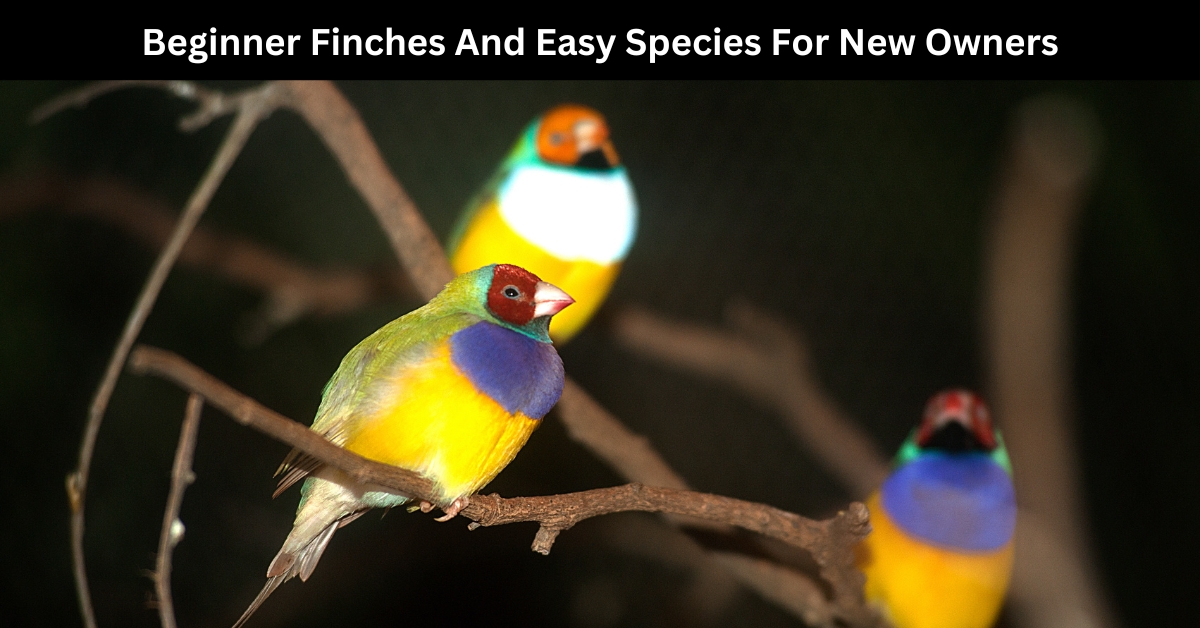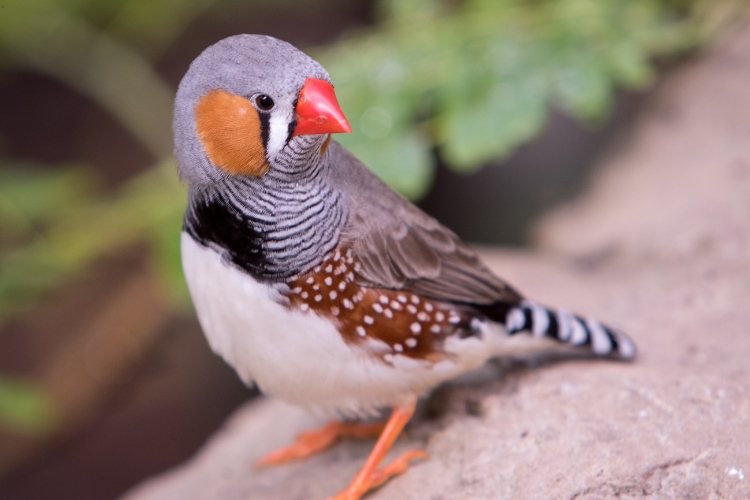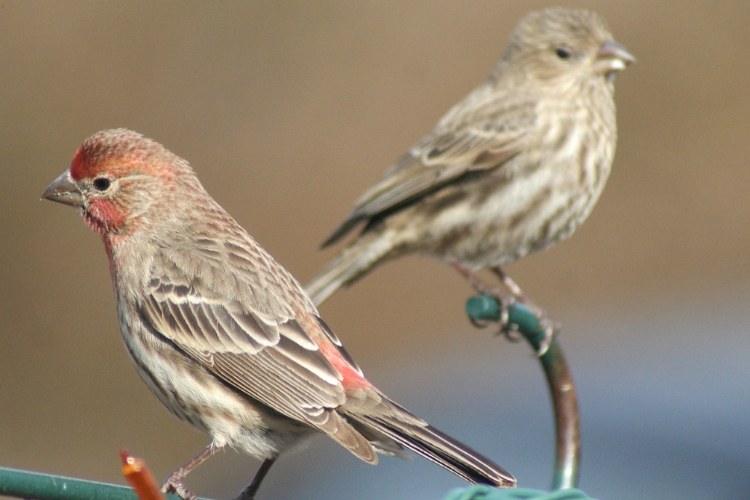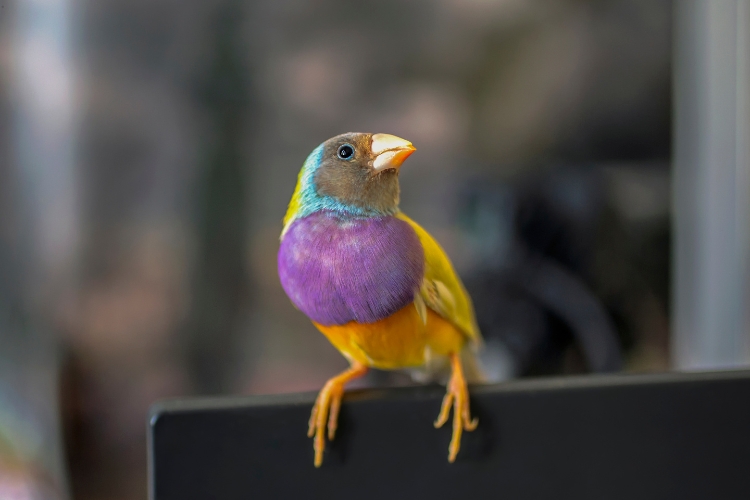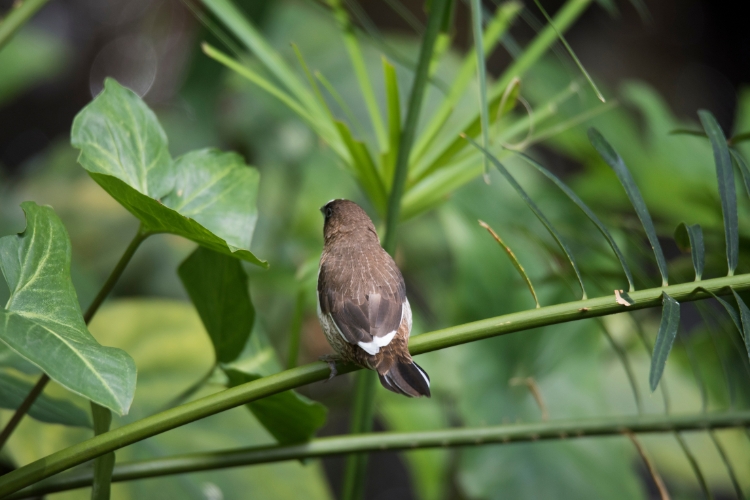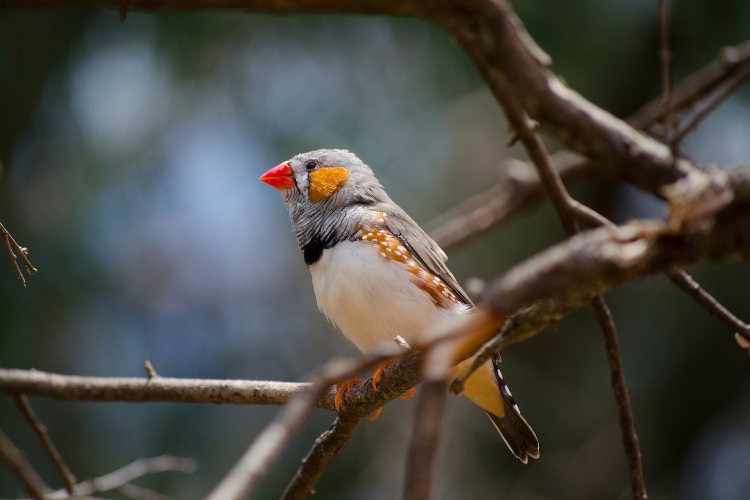Finches make wonderful pets for first-time bird owners due to their low-maintenance care, lively personalities, and adaptability. Zebra and Society Finches are especially beginner-friendly species that thrive in small groups.
To ensure success, new finch owners should prioritize proper housing, balanced nutrition, and consistent health management. Avoiding common mistakes like overcrowding or improper diet can create a happy and thriving environment for these charming birds.
Key Takeaways
| Category | Details |
|---|---|
| Beginner-Friendly Finches | Zebra Finches (hardy, social, low-maintenance) and Society Finches (gentle, adaptable, group-friendly). |
| Essential Habitat | Wide, horizontal cages with multiple perches and proper bar spacing for safety. |
| Nutrition | Balanced diet of seed mix, fresh greens, occasional fruits, and protein supplements. |
| Social Interaction | Thrive in small groups; avoid keeping finches alone to prevent stress and loneliness. |
| Health Monitoring | Watch for signs like ruffled feathers, lethargy, or changes in droppings; maintain routine vet care. |
| Environmental Factors | Stable temperature (65–75°F), draft-free space, and natural or full-spectrum lighting. |
| Mistakes to Avoid | Cramped cages, poor diet, neglecting health signs, and housing incompatible species together. |
| Mental Stimulation | Provide toys, swings, and varied perch materials to keep them engaged. |
1. Best Beginner Finch Species for First-Time Bird Owners
Zebra Finches: The Perfect Starter Bird
Zebra finches stand out as the ultimate beginner finch species. Native to Australia, these tiny birds are incredibly social and adaptable. They typically measure around 4 inches in length and boast distinctive black and white striped patterns. Their hardy nature makes them exceptionally forgiving for first-time bird owners. Zebra finches thrive in pairs or small groups, creating a lively and entertaining environment in your home.
Key Characteristics of Zebra Finches
- Highly social and active birds
- Minimal handling requirements
- Relatively quiet compared to other pet birds
- Affordable and widely available
- Adapt well to various living conditions
Society Finches: The Gentle Companions
Another excellent option for beginners, society finches are known for their gentle temperament and social nature. These birds are actually domesticated mutations and do not exist in the wild. They excel in group settings and are particularly good at fostering and caring for other finch species’ eggs and chicks. Their calm demeanor and low-stress personality make them ideal for novice bird owners who want a peaceful avian companion.
Caring Tips for Society Finches
- Provide a spacious cage with multiple perches
- Maintain a consistent diet of quality finch seed mix
- Ensure fresh water is always available
- Create a calm, draft-free environment
Considering Your Bird’s Living Environment
When selecting finches, potential owners should prioritize creating an appropriate habitat. Finches require a wide, horizontal cage that allows them to fly and move freely. Unlike larger parrot species, these birds are not meant for extensive handling. They prefer observing their surroundings and interacting with their feathered companions.
Essential Habitat Requirements
| Requirement | Specification |
|---|---|
| Cage Size | Minimum 20 inches wide, 20 inches tall |
| Perch Variety | Multiple perches of different diameters |
| Temperature | 65-75 degrees Fahrenheit |
Nutrition and Health Considerations
Proper nutrition plays a crucial role in maintaining your finches’ health. A balanced diet should include high-quality finch seed mix, supplemented with fresh vegetables, egg food, and occasional millet sprays. Regular veterinary check-ups and maintaining a clean living environment are essential for preventing potential health issues.
Recommended Diet Components
- Commercial finch seed mix
- Fresh leafy greens
- Mineral blocks
- Occasional protein supplements
By choosing the right finch species and providing appropriate care, new bird owners can enjoy a rewarding and delightful experience. Zebra and society finches offer the perfect blend of low-maintenance care, social interaction, and charming personalities that make them ideal for those entering the world of pet birds.
2. Essential Care Requirements for New Finch Keepers
Creating the Perfect Living Space
Selecting the right habitat is your first critical step in finch care. These small birds require spacious enclosures that allow them to fly and explore. A cage measuring at least 20 inches wide by 20 inches tall provides adequate room for multiple finches to move comfortably. Consider these key factors when setting up their living environment:
- Choose cages with horizontal bars to facilitate climbing
- Ensure bar spacing is narrow (1/4 to 1/2 inch) to prevent escape
- Install multiple perches at different heights
- Place the cage away from direct sunlight and drafts
Nutritional Fundamentals
Proper nutrition forms the backbone of finch health. A balanced diet should include:
- High-quality commercial finch seed mix
- Fresh vegetables and leafy greens
- Occasional protein sources like egg food
- Mineral supplements and cuttlebone
Water and Hydration Management
Fresh, clean water is paramount for finch survival. Use specialized finch water dispensers that prevent contamination and allow easy cleaning. Replace water daily and thoroughly wash containers to prevent bacterial growth.
Social Dynamics and Companionship
Finches are inherently social creatures that thrive in small flocks. Most species prefer living with 3-4 companions of the same type. Carefully introduce new birds and monitor their interactions to ensure compatibility and reduce potential conflicts.
Healthcare Considerations
Regular health monitoring can prevent potential complications. Watch for these warning signs that might indicate health issues:
| Symptom | Potential Concern |
|---|---|
| Ruffled feathers | Potential infection or stress |
| Reduced activity | Possible illness |
| Changes in droppings | Digestive problems |
Recommended Beginner Finch Species
For novice bird owners, certain finch species offer easier care and more adaptable temperaments:
- Zebra Finches: Hardy, social, and relatively low-maintenance
- Society Finches: Extremely friendly and easy to breed
- Bengalese Finches: Known for gentle dispositions
Environmental Enrichment
Mental stimulation is crucial for finch well-being. Provide toys, swings, and varying perch materials to keep your birds engaged. Rotate toys periodically to maintain their interest and prevent boredom.
Temperature and Humidity Control
Maintain a consistent environment between 65-80 degrees Fahrenheit. Avoid sudden temperature fluctuations that could stress your finches. Use a hygrometer to monitor humidity levels, aiming for 50-70% relative humidity.
By understanding and implementing these essential care strategies, new finch owners can create a nurturing environment that supports their feathered friends’ physical and emotional well-being. Patience, observation, and continuous learning are key to developing a successful and rewarding relationship with these charming birds.
4. Common Mistakes to Avoid When Starting with Finches
Inadequate Housing Considerations
One of the most critical errors new finch owners make is selecting inappropriate housing. Finches require spacious enclosures that allow for natural movement and flight. A cramped cage can lead to stress, muscle weakness, and behavioral issues. Opt for wider horizontal cages rather than tall vertical designs, as finches love to fly side to side.
Cage Requirements to Consider
- Minimum width of 24-30 inches
- Multiple horizontal perches
- Bar spacing no wider than 1/2 inch
- Multiple feeding and water stations
Nutritional Misconceptions
Feeding finches isn’t as simple as providing generic bird seed. Many novice owners don’t realize the importance of a varied diet. While seed mixes are essential, they shouldn’t be the sole nutritional source. fresh vegetables, sprouted seeds, and occasional protein sources is crucial for maintaining optimal health.
Recommended Dietary Components
| Food Type | Frequency | Nutritional Benefit |
|---|---|---|
| High-quality seed mix | Daily | Base nutrition |
| Fresh leafy greens | 3-4 times weekly | Vitamins and minerals |
| Egg food | 1-2 times weekly | Protein supplement |
Social Dynamics and Companionship
Finches are highly social creatures, and keeping them in isolation is a significant mistake. These birds thrive in small flocks and can become depressed or anxious when kept alone. Always consider keeping at least two to three finches together, ensuring they are compatible species and have similar temperaments.
Potential Social Challenges
- Aggressive territorial behaviors
- Potential mating conflicts
- Stress from incompatible companions
Environmental Stress Factors
New owners often underestimate the sensitivity of finches to environmental changes. Sudden temperature fluctuations, drafts, loud noises, and inappropriate lighting can cause significant stress. Create a stable environment with consistent temperature, minimal disruptions, and natural light cycles.
Healthcare Neglect
Preventative care is paramount in finch maintenance. Many beginners delay veterinary check-ups or ignore early signs of illness. Regular observations, clean living spaces, and prompt medical attention when noticing behavioral changes can prevent serious health complications.
Warning Signs to Monitor
- Unusual lethargy
- Changes in droppings
- Decreased appetite
- Ruffled feathers
- Abnormal breathing patterns
By understanding these potential pitfalls, new finch owners can create a nurturing, healthy environment that allows these delightful birds to flourish. Patience, research, and attentive care are the keys to successful finch companionship.
5. Habitat Setup and Environmental Needs for Finch Pets
Creating the Ideal Living Space
When preparing a home for finches, cage selection is your first critical step. Opt for wide, horizontal cages that provide ample flying space, as these birds love to move horizontally rather than vertically. The minimum recommended cage size is 20 inches wide by 20 inches deep, allowing multiple birds to fly and interact comfortably.
Essential Cage Components
- Multiple perches of varying diameters
- Smooth, non-toxic materials
- Removable bottom tray for easy cleaning
- Secure latches to prevent escape
Temperature and Humidity Considerations
Finches are sensitive to environmental changes and require a consistent temperature range between 65-75 degrees Fahrenheit. Avoid placing their cage near drafty windows or air conditioning vents. Maintain humidity levels around 50-60% to prevent respiratory issues and support their delicate feather structure.
Lighting Requirements
Natural light plays a significant role in finch health. Position the cage where they can receive indirect sunlight for 10-12 hours daily. Use full-spectrum lighting during darker months to simulate natural daylight cycles and support their biological rhythms.
Nutrition and Feeding Environment
Strategically place food and water stations to prevent contamination. Use multiple feeding areas to reduce competition among birds and ensure each finch has access to nutrition. Ceramic or stainless steel dishes work best, as they’re easy to clean and resistant to bacterial growth.
Recommended Diet Components
| Food Type | Percentage of Diet |
|---|---|
| High-quality seed mix | 70-80% |
| Fresh vegetables | 10-15% |
| Protein supplements | 5-10% |
Mental Stimulation and Enrichment
Finches are social and intelligent birds that require mental stimulation. Include multiple perches, swings, and bird-safe toys to keep them engaged. Rotate toys periodically to prevent boredom and encourage natural behaviors.
Social Interaction Considerations
Most finch species thrive in small groups. Introduce birds gradually and monitor their interactions. Some species like Zebra and Society finches are particularly social and adapt well to group living.
Cleaning and Maintenance
Implement a strict cleaning routine to maintain a healthy environment. Remove droppings daily, replace water and food daily, and conduct a thorough cage cleaning weekly. Use bird-safe disinfectants and avoid harsh chemicals that could harm your finches.
Recommended Cleaning Supplies
- Soft bird-safe brushes
- Unscented, mild detergents
- Disposable cleaning cloths
- Vinegar solution for natural disinfecting
By carefully crafting an environment that mimics their natural habitat, you’ll create a thriving, healthy space for your finch companions. Consistent care, attention to detail, and understanding their unique needs will ensure your birds remain happy and vibrant.
6. Nutrition and Health Management for Beginner Finch Owners
Essential Dietary Requirements
Finches have specific nutritional needs that differ from other pet birds. A balanced diet is crucial for maintaining their health, energy, and vibrant plumage. The primary components of a finch diet should include:
- High-quality seed mix specifically designed for finches
- Fresh fruits and vegetables
- Protein supplements
- Mineral blocks and calcium sources
Seed Mix Composition
Your finch’s primary food source should be a specialized seed mix that includes a variety of seeds such as:
- Millet
- Canary seed
- Niger seed
- Sunflower hearts
Supplemental Nutrition Strategies
Beyond standard seed mixes, incorporate fresh foods to provide additional nutrients. Leafy greens like spinach and kale offer vital vitamins, while small amounts of fruits can provide natural sugars and additional minerals.
| Food Type | Nutritional Benefit | Recommended Frequency |
|---|---|---|
| Leafy Greens | Vitamin A, Calcium | 2-3 times per week |
| Fresh Fruits | Vitamin C, Antioxidants | 1-2 times per week |
| Protein Sources | Egg Food, Insects | Once per week |
Water Management and Hydration
Clean, fresh water is paramount for finch health. Replace water daily and use specialized bird water dispensers to prevent contamination. Ensure water is free from chlorine and other harmful chemicals.
Health Monitoring Techniques
Regular observation helps detect potential health issues early. Watch for signs of:
- Changes in droppings
- Unusual feather condition
- Decreased activity levels
- Respiratory changes
Preventative Care Approaches
Implement routine health checks and maintain a clean habitat. Quarantine new birds before introducing them to existing flocks, and schedule annual veterinary consultations with an avian specialist.
Environmental Considerations
Temperature, humidity, and cage placement significantly impact finch health. Maintain ambient temperatures between 65-75 degrees Fahrenheit and avoid drafty areas. Provide adequate lighting and ensure proper ventilation in their living space.
Stress Reduction Strategies
Minimize environmental stressors by maintaining consistent routines, providing adequate social interaction, and creating a calm, predictable environment. Finches are social creatures that thrive on stable, structured living conditions.
By focusing on comprehensive nutrition, attentive health management, and thoughtful environmental design, you can support your finches’ long-term well-being and enjoyment. Patience, observation, and consistent care are key to raising healthy, happy finches.
Conclusion
Starting your journey with finches can be an exciting and rewarding experience when you’re well-prepared and informed. These delightful little birds offer companionship, vibrant energy, and a unique pet ownership experience that can bring joy to your home. By carefully selecting the right species, understanding their specific care needs, and creating an optimal environment, new finch owners can set themselves up for success.
Remember that each finch species has its own personality and requirements, so patience and continuous learning are key. Investing time in proper habitat setup, nutrition, and healthcare will help ensure your feathered friends thrive. Avoiding common beginner mistakes like overcrowding, improper diet, and inadequate environmental conditions can make a significant difference in your finches’ quality of life.
Successful finch ownership is about building a nurturing relationship with these small but charming birds. Start with more beginner-friendly species like Zebra or Society finches, which are more adaptable and forgiving for first-time owners. Stay committed to regular veterinary check-ups, provide a balanced diet, maintain a clean and stimulating habitat, and always approach their care with dedication and love.
As you gain experience, you’ll discover the unique personalities of your finches and develop a deeper understanding of their needs. With the right knowledge, preparation, and commitment, you can create a happy and healthy environment for these wonderful little companions. Your journey into finch ownership can be a delightful and enriching experience that brings color, music, and joy into your home.

